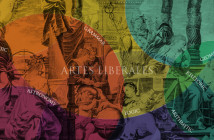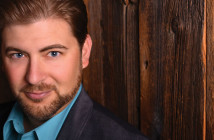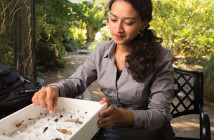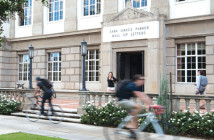According to Kathy J. Ogren, liberal education in the 21st century must focus on what it does best—provide students with lifelong skills that are applicable in “real-world” settings. As provost, Ogren is working to ensure that the University’s curriculum continues to evolve and “remains open to innovation … especially in these times of new technologies and modes of learning.” President Ralph Kuncl cited Ogren’s “perspicacious thinking about liberal learning and scholarship” as a significant factor in her appointment. Here Provost Ogren talks about her new role, and why the tradition of liberal education is at the heart of her academic vision.
Why is the provost role particularly important in a liberal arts setting?
The provost is directly responsible for ensuring a comprehensive liberal arts education for all students at the University. One way to do this is operationally, working with the deans and many academic support units to serve our students and faculty. Another way is through awareness and education. Alongside administrative responsibilities, the provost remains a professor who can help others better understand the benefits of a liberal education.
How would you respond to the recent public discourse on the value of a liberal arts education?
We live in an era when employability often dominates public discussions about the liberal arts. In many ways this emphasis makes sense—evidence abounds for the economic value of a liberal arts education. However, an exclusive focus on the economic value creates a limited and shortsighted vision. Our students should expect a liberal arts degree to bring them intellectual, cultural and civic education, too. We want to empower them with skills for living fully and freely—thinking critically, writing and speaking well, collaborating and making ethical decisions. We want to help our students find ways to connect the rich inquiries of the liberal arts and sciences with the “real world” concerns that often shape educational choices.
What do you see as the greatest educational challenges facing the University as a liberal arts institution?
We must find ways to effectively tell our story—we cannot let others with less information about the liberal arts, in the media or elsewhere, do it for us. I also believe that we must listen to our students’ needs for engaged curriculum and programs, which will help us continue to evolve. Finally, we must work to ensure a more diverse community of scholars and students. This will not only make us stronger, it will provide us with the breadth of perspectives upon which the liberal arts and sciences depend.
What has the “liberal arts” meant to you?
As a student, I wrote a senior thesis at Scripps College on the brilliant female transcendentalist Margaret Fuller, which “schooled me” in archival research, textual analysis and interpretation, and writing. I was also deeply inspired by Fuller’s life and work, and I came to believe that I, too, could pursue a life’s project that would not be pre-determined by others. Now as provost, I am charged with ensuring students have opportunities to find their own passions. As I tell our students, I am now the “keeper of keys” for their learning adventures. I want them to be as transformative as mine were.




